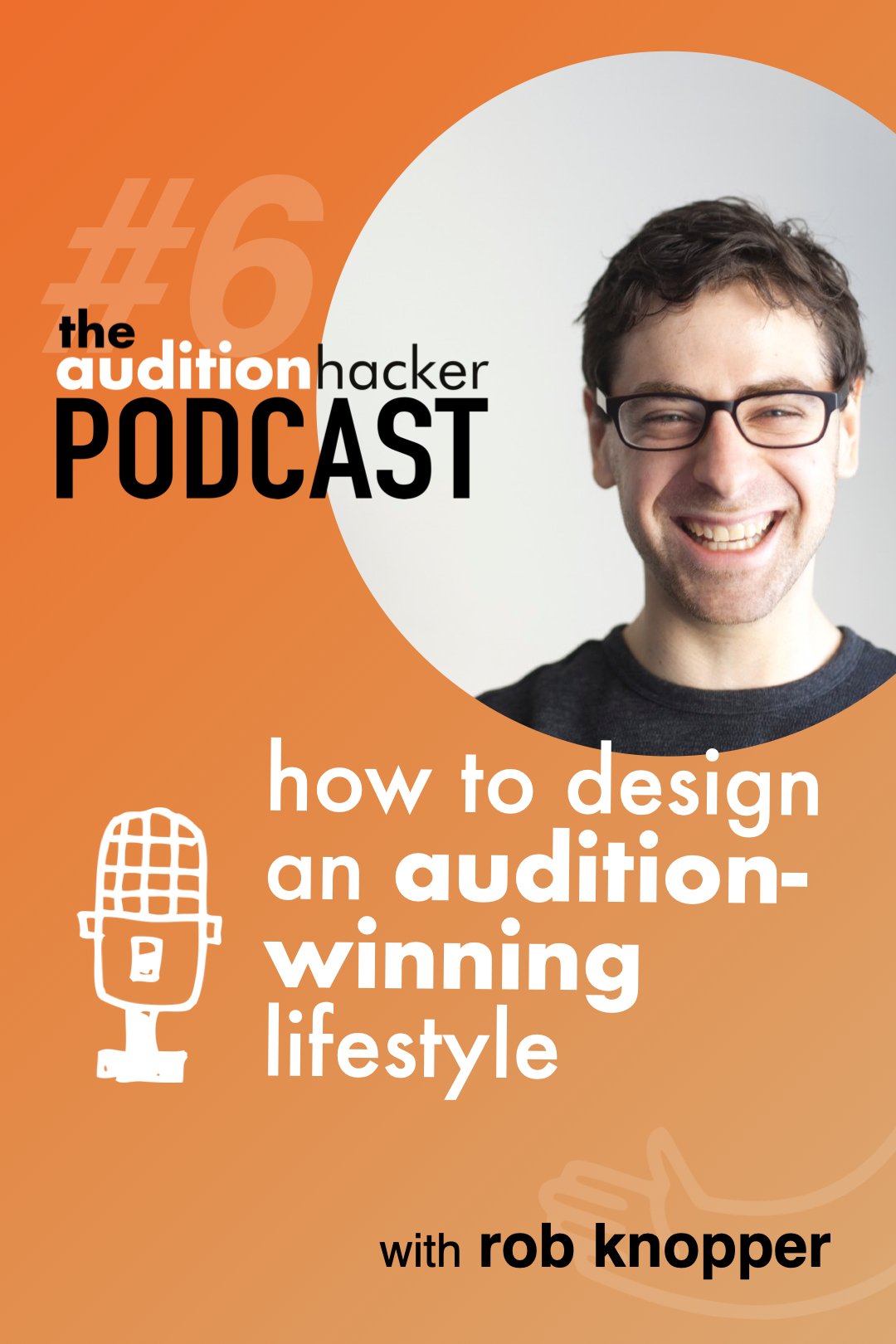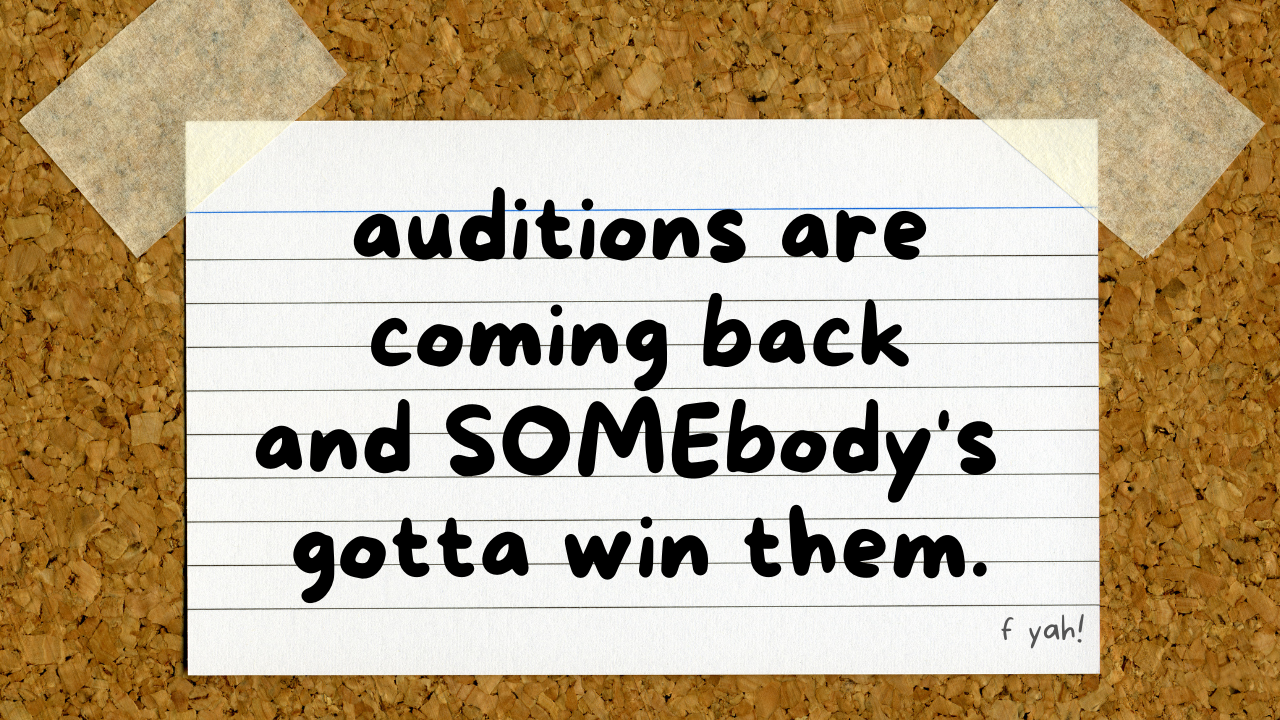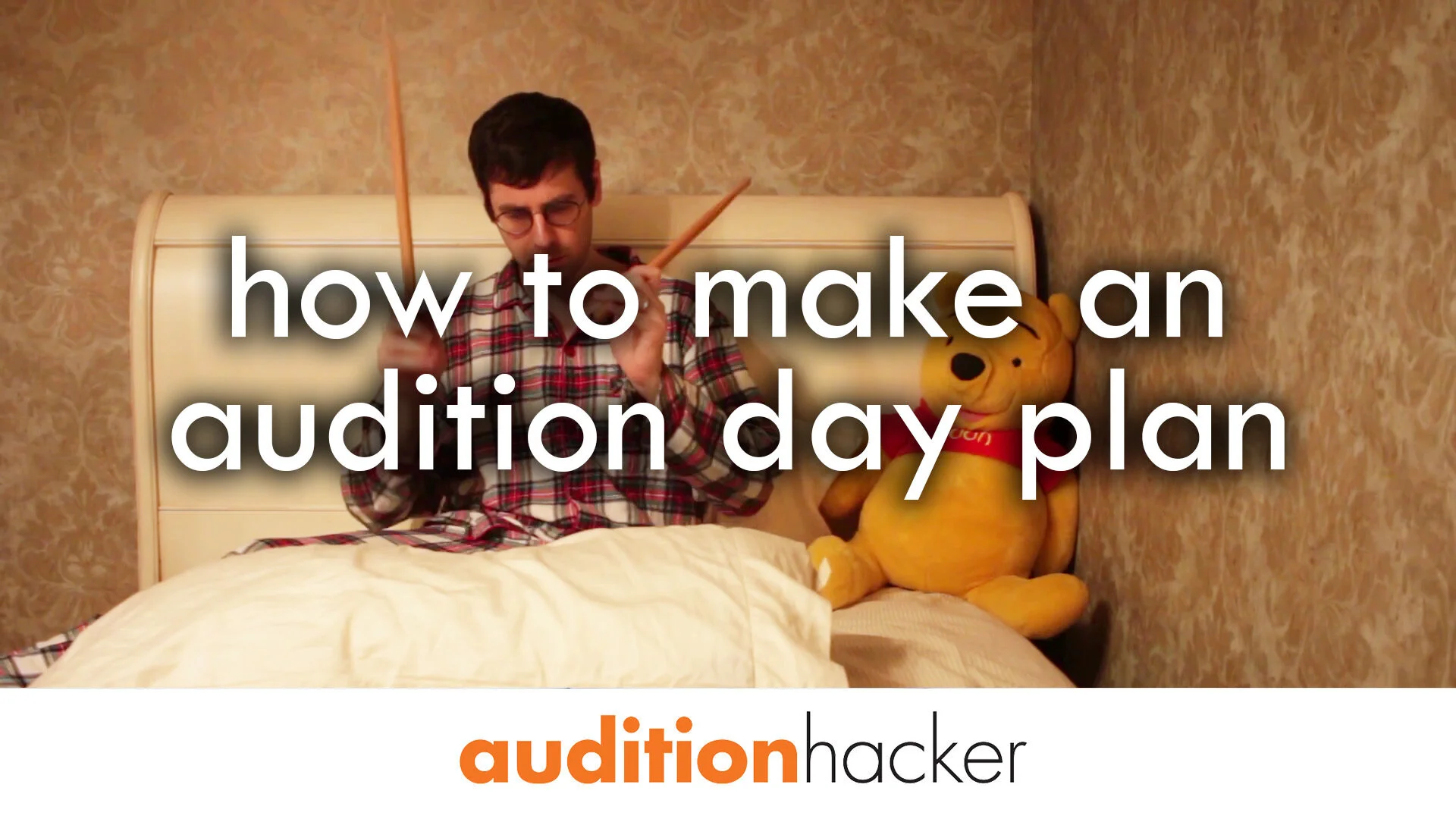have you ever experienced being unprepared for orchestra?
(you don’t have to answer that.)
well, i have.
like, when i was called at the last minute for a christmas pops gig in fort wayne, indiana. or like when i was so busy during college that i’d show up to lab orchestra and sight read. and i'd tell myself, “ok. as long as i look over the music carefully and count every measure of rest constantly, i should be able to get through this rehearsal.” and sometimes that would work.
but sometimes i’d be counting along and my mind would wander a bit. and suddenly i’d forget which measure of rest i was in and BAM! ALL IS LOST. oh no.
those were the moments of panic and fear when i'd tell myself, “never again.” now i try to come in for orchestra so prepared that i could trust myself to fall asleep and wake up one measure before my entrance knowing exactly where to play.
(i qualify that above statement with ‘i try to’ because, ahem, well, you know. i try.)
anyway, when i’m studying my part for orchestra, i listen to the piece 5 times. it’s really effective. here’s my new video explaining exactly how i do it.
want to nail your next audition?
here's the 5-part audition preparation method i used to win a job in the met orchestra.
(for any instrument!)

it's episode #8 of the auditionhacker podcast, and i'll go over my best methods for getting better feedback.
it’s episode #7 of the auditionhacker podcast, and i’ll go over:
how i spent 6 months perfecting the 12 delécluse études,
the special strategy i used in preparation, called “the magical shrinking self-recording workflow”,
how preparation needs to be structured for a recording vs. a live audition, and
my best tips and strategies to make a recording session go smoothly.
it’s episode #6 of the auditionhacker podcast, and i’m going over:
the legendary and now-defunct practice of challenges,
adopting the olympian mindset as a musician, and
the most accurate indicator of future audition success.
i've worked with hundreds of musicians on audition preparation. and nothing - NOTHING - has been as effective and life-changing as when they start self-recording the right way.
imprecise rhythm is something that can get you cut from an audition IMMEDIATELY (regardless of your instrument). and great rhythm is something that an audition committee can sense, both consciously and subconsciously. hearing someone play in the pocket just feels good.
well, i have a few tricks up my sleeve to straighten out my rhythm, and today i'm sharing one of the most effective strategies.
in today's episode, i'll go over:
my audition journey and how i ended up winning the met opera job,
3 of my favorite audition hacks, and
the one thing that's so much more meaningful than the result of the audition.
things i do on audition day:
warm up by playing on the hotel pillow,
watch vast amounts of tv shows on my phone, and
never drink coffee.
when i was in detroit in february i got to interview three great DSO musicians on how they approach audition day. pretty fascinating to see how their approaches are so different from each other.










in 2019, a cellist named maria reached out to me about her audition struggles. on paper, she was the “worst audition candidate ever” (her words). she had 2 small children, a full-time teaching job, and hadn’t taken an audition in 4 years.